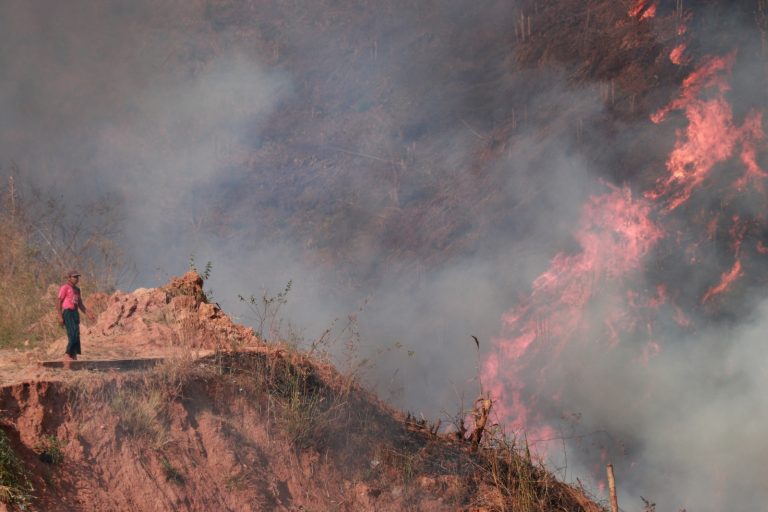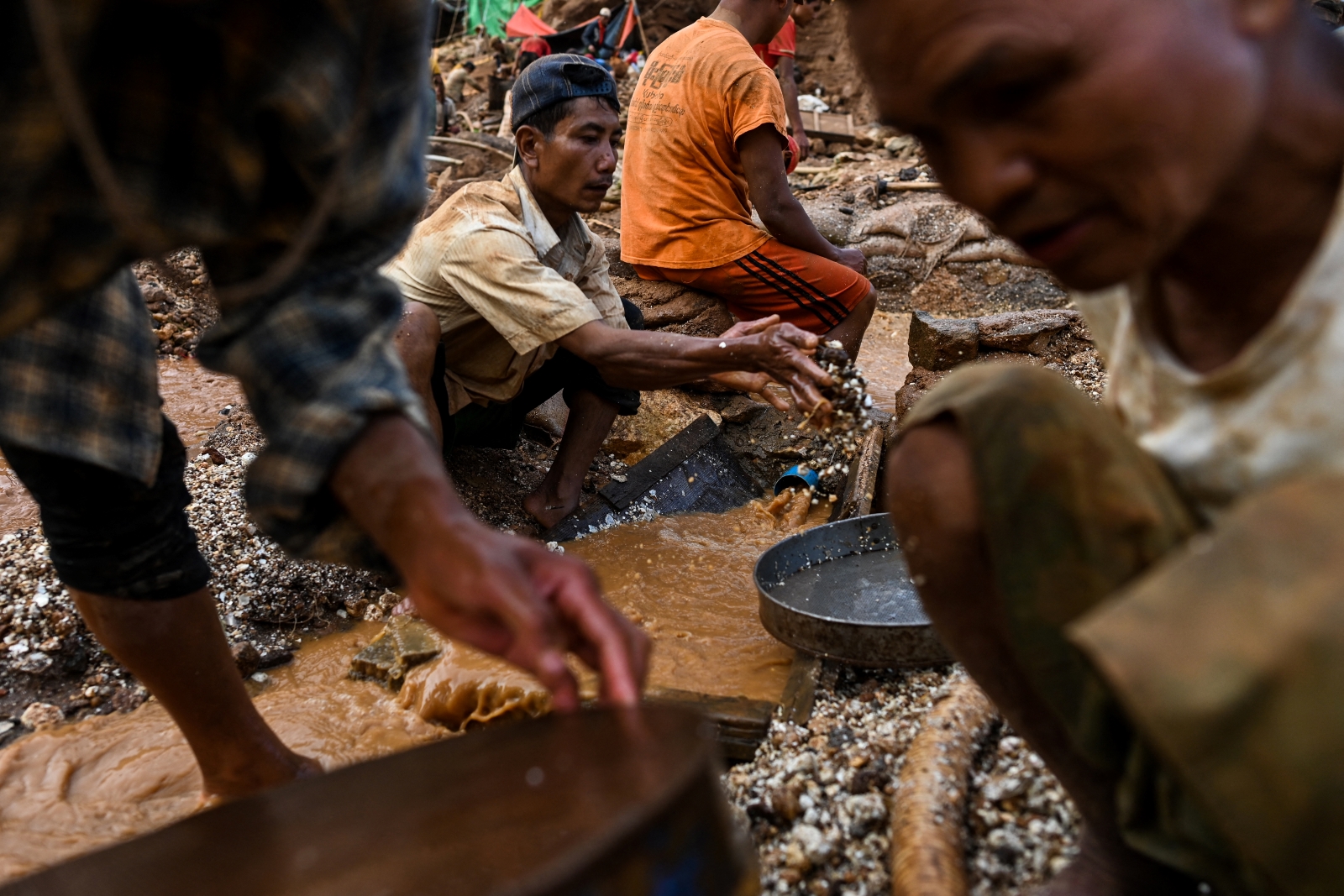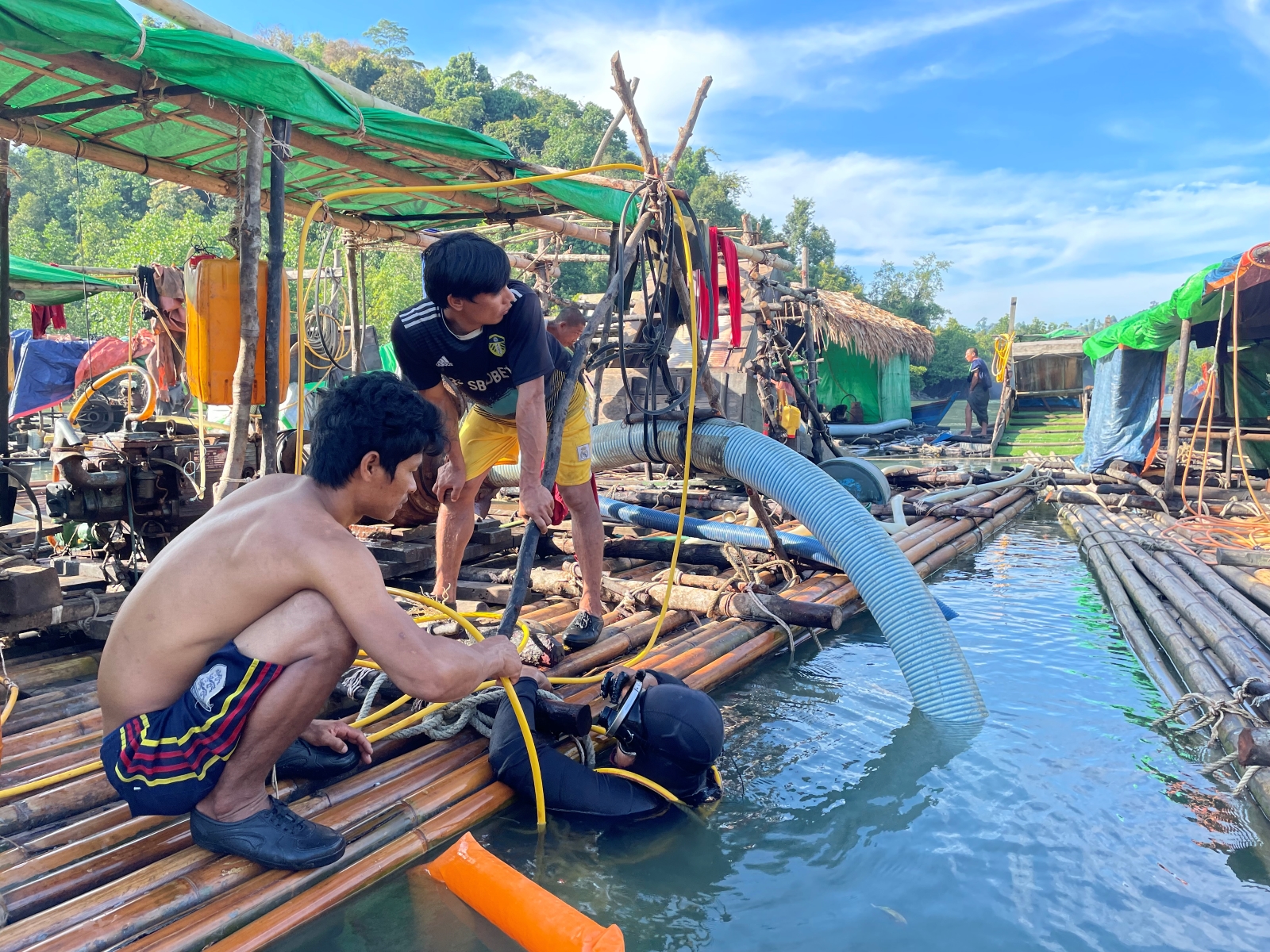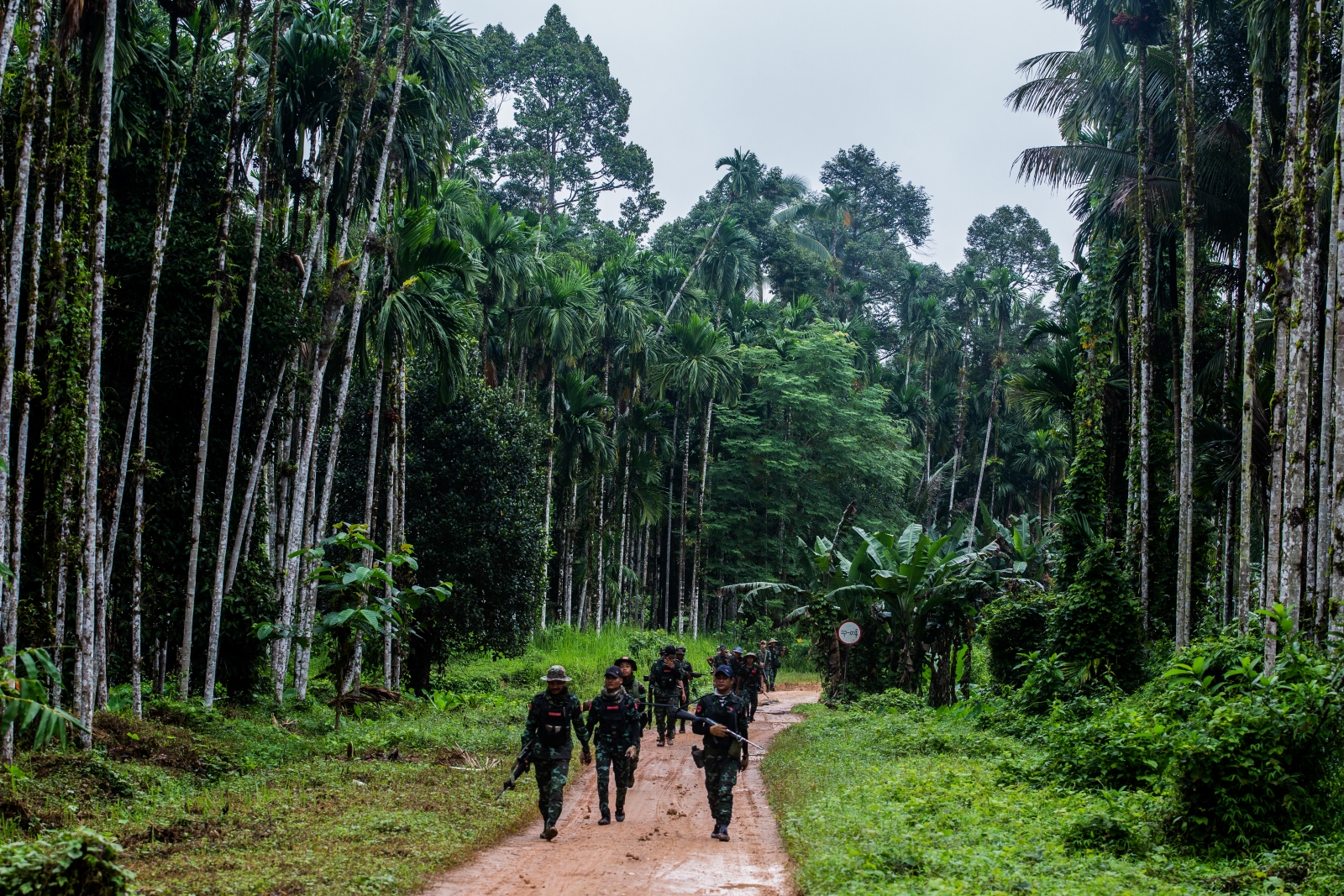Any company wanting to benefit from exploiting Myanmar’s rich natural resources should have to give something back to the communities in which it operates.
The depletion of Myanmar’s natural resources in recent decades has been well documented. Under a military government that cared little for transparency and accountability, concessions for projects that had a devastating effect on the environment were handed out to well-connected companies with few, if any, checks and balances.
The companies operated in a culture in which responsibility was not encouraged. They had little incentive to abide by international standards for environmental protection.
The results were devastating. Forest cover in Myanmar shrank from 65 percent in 2000 to 45 percent in 2015, said the UN Food and Agriculture Organization in its 2015 Global Forest Resources Assessment. The same report said Myanmar had the world’s third-highest annual deforestation rate, after Brazil and Indonesia.

Jared Downing / Frontier
Large-scale projects, including infrastructure, mining and plantation agriculture, are not the only culprits. Illegal logging and unsustainable local practices have also contributed to the degradation of Myanmar’s natural resources, but the lack of transparency in larger projects has certainly exacerbated the situation.
The effects have been keenly felt in a country where a significant proportion of the population relies on natural resources to make a living. In communities throughout the nation there are reports of water supplies becoming so contaminated that villagers can no longer rely on them.
Support more independent journalism like this. Sign up to be a Frontier member.
Another major issue is the threat posed by habitat destruction to the survival of Myanmar’s diverse wildlife, much of which is endemic.
The situation presents a great opportunity – and challenge – to the National League for Democracy government. If it is able to enforce new environmental protection measures and maintain its determination to crack down on corruption – no easy feat after decades when accountability was lacking – one of the outcomes will be a positive change in the way large-scale projects are monitored.
Any company wanting to benefit from exploiting the country’s rich natural resources should have to give something back to the communities in which it operates. It is no longer enough to build a few schools and health centres for the local community. Companies must be required to engage genuinely with local communities and respond to their concerns. They must, where possible, provide job opportunities for local residents.
The recent charm offensive by China to seek support for a resumption of work on the controversial Myitsone dam has illustrated how the change of government has had a positive effect on attitudes toward community engagement. In a question and answer session for journalists at his Yangon residence in March, the Chinese ambassador, Mr Hong Liang, admitted that his government had taken a new approach to Myanmar after the transition to a civilian-led government.
Despite some lingering questions from the business community – explored elsewhere in this issue – Myanmar remains a place of significant interest for investment, not least because of its natural resources.
A challenge for the government is to ensure that Myanmar remains an attractive investment destination, but that any investment – whether new or among the surge of projects approved in the dying days of the former government – is subject to rigorous standards of transparency.
The energy sector provides an example. Myanmar must find new sources of energy to maintain and spur economic growth. Current planning relies heavily on coal and gas, but the new administration has indicated a preference for other options. That preference is likely to lead to greater investment in hydroelectricity.
But the previous lack of transparency and engagement with local communities has left a legacy of deep scepticism over hydropower projects. This will take time – and results – to change. A top priority of the NLD government should be fostering a culture that invites scrutiny of large-scale projects and keeps the public informed about them, in the interests of achieving sustainable economic growth.







